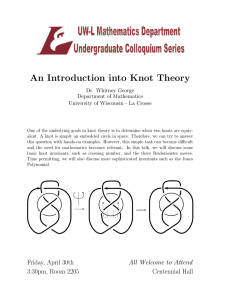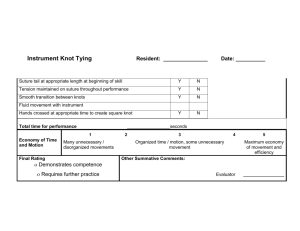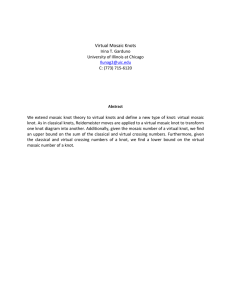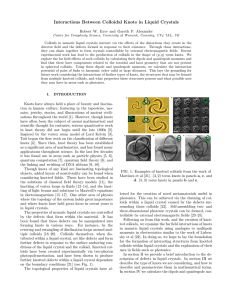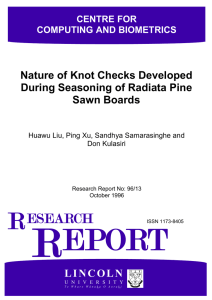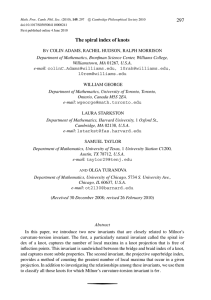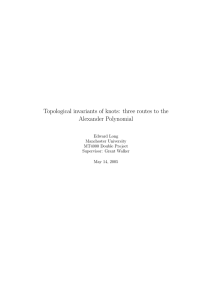Coloring knots . Two knots are equivalent
advertisement
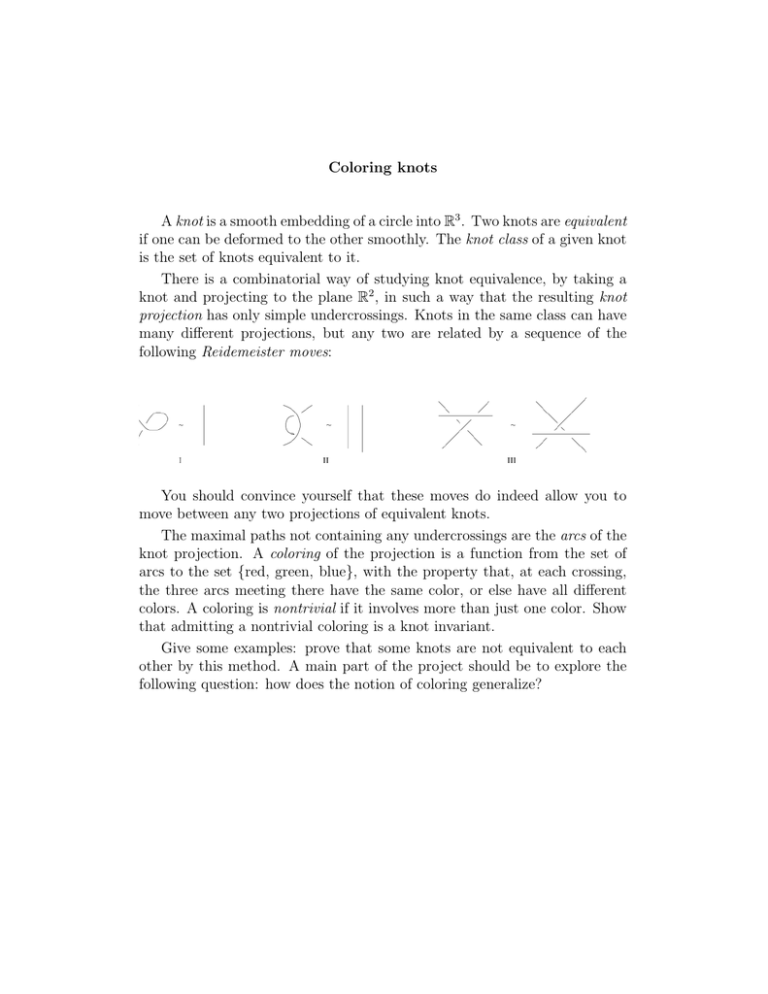
Coloring knots
A knot is a smooth embedding of a circle into R3 . Two knots are equivalent
if one can be deformed to the other smoothly. The knot class of a given knot
is the set of knots equivalent to it.
There is a combinatorial way of studying knot equivalence, by taking a
knot and projecting to the plane R2 , in such a way that the resulting knot
projection has only simple undercrossings. Knots in the same class can have
many different projections, but any two are related by a sequence of the
following Reidemeister moves:
You should convince yourself that these moves do indeed allow you to
move between any two projections of equivalent knots.
The maximal paths not containing any undercrossings are the arcs of the
knot projection. A coloring of the projection is a function from the set of
arcs to the set {red, green, blue}, with the property that, at each crossing,
the three arcs meeting there have the same color, or else have all different
colors. A coloring is nontrivial if it involves more than just one color. Show
that admitting a nontrivial coloring is a knot invariant.
Give some examples: prove that some knots are not equivalent to each
other by this method. A main part of the project should be to explore the
following question: how does the notion of coloring generalize?
MIT OpenCourseWare
http://ocw.mit.edu
18.821 Project Laboratory in Mathematics
Spring 2013
For information about citing these materials or our Terms of Use, visit: http://ocw.mit.edu/terms.
